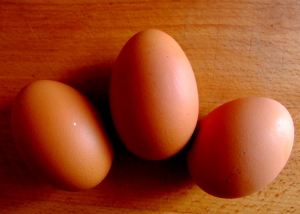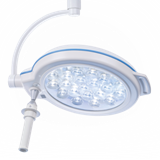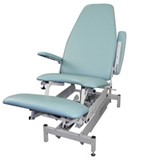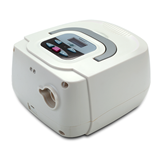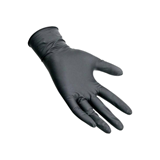The research aims to produce allergy-free eggs for use in food consumption and the production of common vaccines such as flu vaccines.
Deakin University is internationally recognised for its research into allergies and CSIRO is recognised for its expertise in macromolecule modification through RNA interference (RNAi) technology.
The two research organisations are bringing their respective expertise to a collaborative research project to produce allergy-free eggs, the first of its type for both organisations.
Adjunct Professor Tim Doran, Project Leader at CSIRO's Australian Animal Health Laboratory, himself the father of an anaphylactic child, said the world-leading research had the potential to substantially improve the lifestyles of thousands of families who lived in fear of their children consuming egg whites and having an anaphylactic shock as a result.
"The effect of this type of allergy on the whole family is immense," he said
"Because in many cases all food has to be prepared in the home as you can't guarantee that food purchased outside the home won't have traces of egg white.
"We recently did a long-haul flight with the family and had to prepare all meals to take on the plane."
Associate Professor Cenk Suphioglu from Deakin's School of Life and Environmental Sciences said new parents in particular were very nervous about serving eggs to their infants for the first time.
"There is evidence that new parents are exposing their infants to egg products for the first time in the car parks of major children's hospitals just so they are close to medical attention in case their child reacts adversely," he said.
The collaborative research being undertaken by Deakin PhD candidate, Pathum Dhanapala, under the co-supervision of Associate Professor Suphioglu and Adjunct Professor Doran, will involve switching off the allergenic part of the protein in the chicken egg white and then reintroducing the protein to the egg in a non-allergenic form.
Of the 40 proteins in egg white, there are four major allergens and this research will systematically switch off the allergens in all four, creating a hypoallergenic egg that can produce chickens, which lay allergy-free eggs.
Adjunct Professor Doran said it was the proteins in the egg that were being modified, as opposed to the genes or DNA of the chickens, using RNAi technology that has previously been used by CSIRO to modify important traits in crops.
"We are not producing genetically modified chickens as part of this research, we are simply modifying the proteins within the egg whites to produce chickens which lay allergy-free eggs," he said.
"This is a completely novel approach in that previous egg-allergy research has cloned the egg-white-allergen genes but no-one has gone as far as to make the proteins non-allergenic," Associate Professor Suphioglu said.
"We have enjoyed huge support from the poultry industry in recent years to help us research chickens and this research is being funded by the Poultry CRC," Adjunct Professor Doran added.
With eggs commonly being used in vaccine production, the research also has significant positive implications for medical application.
People who are allergic to egg whites, for instance, are currently prevented from having a standard flu vaccine.
The research is expected to take three years to complete with the possibility that allergy-free vaccines could be available within five years and allergy-free eggs could be available in supermarkets for human consumption within five or 10 years.

